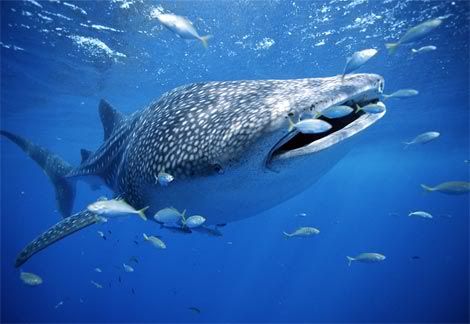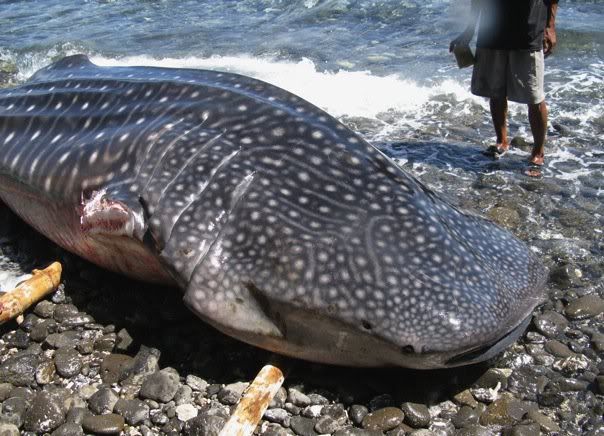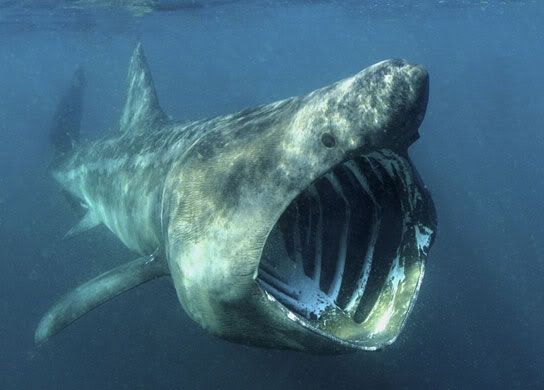
The Whale Shark

Whale Shark definned
Back before 1996, it was a different matter in Canada. Anthony Marr began his AR career in 1995, starting from Vancouver's Chinatown,
He noted that in all the Chinese apothecaries there were traditional Chinese medicines containing endangered species ingredients openly displayed on store shelves for sale, ingredients included tiger bone, tiger penis, rhino horn, rhino skin, bear bile, etc.
First of all, this seems to violate the CITES (Convention on the International Trade of Endangered Species of Animals and Plants) law which forbids the international trading of endangered species, dead or alive, in whole or part. And this means no importation of these medicines from Asia into Canada.
However, once these items have been smuggled into the country, there was no internal Canadian law to ban their distribution and sale. Thus, there existed the ridiculous situation and legal farce within Canada which says that as long as you could smuggle these internationally illegal items through customs, you'd be allow to sell them openly.
In November 1995, Anthony Marr launched his Chinatown campaign, later incorporated by the Western Canada Wilderness Committee, to bring media into Chinatown to show them, and through them, the world, that bad medicine was legal in Canada. This campaign blew the lid off Chinatown, and made news in Ottawa within weeks. In June 1996, the WAPPRIITA law (The Wild Animal and Plant Protection and Regulation of International and Interprovincial Trade Act)was enacted, which prohibits the sale of anything containing endangered species ingredients.
Thanks to the CITES/WAPPRIITA combo, tiger bone medicines and bear bile pills have disappeared from Chinatown shelves since 1997.

Shark fins galore
But in 2011, Chinatown is stocked full of another type of product that, according to CITES/WAPPRIITA, should be illegal, but it is not. I am of course referring to shark fins.
Here is why: There are 440 species of sharks in the world, of which 202 are currently listed by CITES as endangered, and the 202 includes the high profile species like the Whale Shark, the Basking Shark, Blue Shark, the Great White Shark, the Tiger Shark, the Leopard Shark... By CITES rules, therefore, the international trades of the fins from these endangered species should be illegal.
Here is a complete list:
http://www.shark.ch/Database/EndangeredSharks/index.html?lim=1&slang=2
And within Canada, according to the WAPPRIITA law, the sale of the fins from these endangered species should likewise be illegal.
Well now, they will try to nit-pick, and argue that by the same token, the fins from non-endangered species should be legal, and in theory, this is true. But then, it should be up to the traders and merchants to prove that a certain fin is from a non-endangered species, by means of DNA analysis, perhaps?
Go ahead, make my day.

Basking Shark
Anthony Marr, Founder and President
Heal Our Planet Earth (HOPE)
Global Anti-Hunting Coalition (GAHC)
Anthony-Marr@HOPE-CARE.org
www.HOPE-CARE.org
www.facebook.com/Anthony.Marr.001
www.facebook.com/Global_Anti-Hunting_Coalition
www.myspace.com/AnthonyMarr
www.youtube.com/AnthonyMarr
www.HomoSapiensSaveYourEarth.blogspot.com
www.DearHomoSapiens.blogspot.com (AM's 3rd-book-in-the-making)
www.myspace.com/Anti-Hunting_Coalition
www.ARConference.org
No comments:
Post a Comment